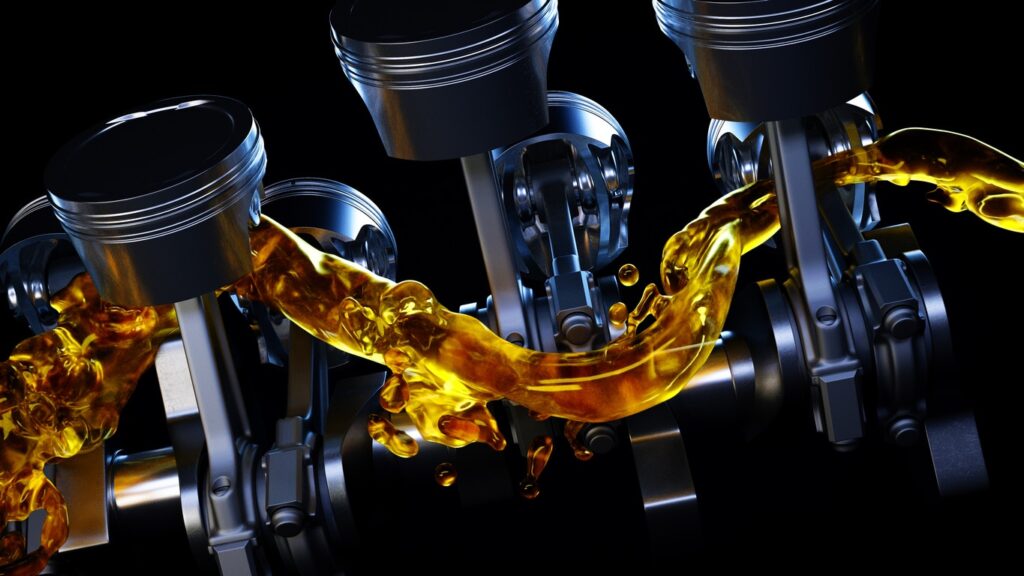
Synthetic oil is a highly engineered lubricant designed to provide superior performance and protection for modern engines and machinery. Unlike mineral oils, which are derived from crude oil with minimal processing, synthetic oils are formulated through chemical processes to achieve optimal molecular consistency and advanced properties. This article delves into the features, benefits, and applications of synthetic oil, highlighting why it is the preferred choice for many high-performance and demanding applications.
Synthetic oil is created through the chemical modification of petroleum components or synthesized entirely from other chemical compounds. This process allows for precise control over the oil’s molecular structure, resulting in a lubricant with enhanced properties such as high thermal stability, excellent viscosity control, and superior cleanliness.
1. Thermal Stability: Synthetic oil resists breakdown at high temperatures, maintaining its effectiveness in extreme heat.
2. Low-Temperature Fluidity: It remains fluid in freezing conditions, ensuring reliable engine start-up and protection in cold weather.
3. Uniform Molecular Structure: This minimizes friction, enhances efficiency, and reduces wear on engine components.
4. Enhanced Additives: Synthetic oils often include advanced additive packages for improved cleaning, corrosion resistance, and overall engine protection.
1. Extended Oil Change Intervals: Due to its durability and resistance to degradation, synthetic oil typically lasts longer than mineral oil, reducing the frequency of oil changes.
2. Improved Engine Protection: Its consistent molecular structure provides superior lubrication, reducing wear and tear on critical engine parts.
3. Enhanced Fuel Efficiency: By reducing friction, synthetic oil helps engines run more efficiently, potentially lowering fuel consumption.
4. Cleaner Engine Operation: Synthetic oil’s detergents and dispersants help prevent sludge and deposit formation, keeping engines cleaner over time.
5. Wide Temperature Range: It performs reliably in both extreme heat and cold, making it suitable for diverse operating environments.
1. Higher Cost: Synthetic oil is more expensive than mineral or semi-synthetic oils, although its extended lifespan can offset this cost over time.
2. Not Always Necessary: For older vehicles or engines with low performance demands, synthetic oil’s advanced properties may be underutilized.
3. Compatibility Considerations: Some older engines or seals may not be fully compatible with synthetic oils, requiring careful evaluation.
1. Automotive Industry: Modern passenger cars, high-performance sports cars, and luxury vehicles benefit from synthetic oil’s advanced protection and efficiency.
2. Heavy-Duty Equipment: In trucks, construction machinery, and agricultural equipment, synthetic oils enhance durability and reduce downtime.
3. Industrial Machinery: Synthetic oils are essential in applications where extreme temperatures or high pressures are common, such as manufacturing and power generation.
4. Aviation and Marine: Aircraft and marine engines rely on synthetic lubricants for their stability and reliability in challenging environments.
High-Performance Engines: For engines requiring maximum protection and efficiency, synthetic oil is the best choice.
Extreme Conditions: If your vehicle operates in very hot or cold climates, synthetic oil ensures reliable performance.
Reduced Maintenance Needs: For users seeking extended oil change intervals and lower overall maintenance, synthetic oil provides a practical solution.
Conclusion
Synthetic oil represents the pinnacle of lubricant engineering, offering unmatched performance, durability, and protection for modern engines and demanding applications. While it comes at a higher initial cost, its long-term benefits, including reduced maintenance, enhanced engine lifespan, and improved fuel efficiency, make it an excellent investment. Whether for high-performance vehicles, industrial machinery, or extreme operating environments, synthetic oil is the lubricant of choice for those who prioritize quality and reliability.